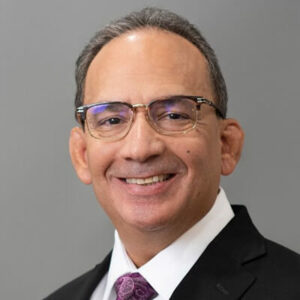As a Florida business owner, protecting your product and brand identity is vital. Some Florida businesses choose to trademark their logo, name, and other singular qualities. However, what happens if a business doesn’t use its trademarked content? The answer—It depends on the facts. Under some circumstances, the nonuse of a trademark is permissible. Here is more on excusable nonuse of a trademark:
What is a Trademark?
An entity’s unique identifying features can be considered its intellectual property and can be trademarked. According to the U.S. Patent and Trademark Office (USPTO), a trademark is “a word, phrase, symbol or design that identifies your goods and services.” When a business registers a trademark, they have the exclusive right to use the identifying features with its brand, good, or service. The entity can use the trademark to prevent competitors from doing so.
What Kinds of Information Can be Trademarked?
Generally, trademarks can be obtained for brand logos, product and business names, unique color patterns or schemes, slogans, distinctive sounds (such as T-Mobile’s chime), and other distinct features. Marks that are already in use or that are extremely similar to another mark already in use cannot be assigned to another entity’s intellectual property.
What is Trademark Nonuse?
To have a valid trademark, an owner must meet certain requirements. Specifically, the mark’s holder must use the trademark in commerce, show continuous use of the trademark, and meet specific filing requirements. When a trademark owner uses their trademark for five years after the mark’s registration date, they can file a declaration that will make the mark incontestable. However, the use must be continuous. If the mark’s holder stops their use, the time will restart from when it is back in use. Trademark holders are also expected to remove goods and services that are no longer in use.
As the name implies, trademark nonuse or abandonment occurs when a mark’s holder does not actually use the trademarked content. Nonuse can occur when a mark’s holder stops their use without intent to resume use. Abandonment can also be established when a mark goes unused for three consecutive years. When a mark has been deemed abandoned, the owner loses certain rights, and others may use the mark. There can also be circumstances when a trademark is canceled for nonuse with an intent not to resume.
Federal trademarks are governed by the Trademark Modernization Act (TMA). This law provides that trademarks can be removed or canceled when abandoned. A party seeking to cancel a trademark for nonuse can file a petition seeking that the USPTO remove (expunge) or reevaluate a trademark’s registration. The party seeking the removal may do so on the basis that the mark was never used in commerce or that it was not used by a specific date. Currently, someone seeking an expungement may do so between 3 and 10 years after a mark’s registration date. However, beginning December 27, 2023, an expungement proceeding may not be requested against any registration older than ten years.
Excusable Nonuse
There are circumstances when a mark’s holder may be able to establish that their nonuse was due to something beyond their control. When a mark’s holder can make this showing, they may be protected from abandonment claims. However, the five-year continuous use requirement for incontestability will not be excused.
Understanding excusable trademark nonuse trademark is essential to protecting your Florida business, its intellectual property, and applicable trademarks. The best way to assess your trademark requirements and circumstances is by consulting an experienced Florida business attorney. Your Florida business lawyer can review your options with you so you can make informed decisions about how to protect your business’s intellectual property.
Contact an Experienced Florida Business Lawyer
Attorney Richard Sierra at the Florida Small Business Legal Center assists clients like you with commercial leasing, business, and litigation matters. As always, Our Goal Is to Help You Succeed™. For an appointment, you may call us at 1-866-842-5202 or use the contact form on our website. We represent clients throughout the State of Florida, including Coral Springs, Coconut Creek, Boca Raton, Delray Beach, Pompano Beach, Sunrise, Fort Lauderdale, Miami, West Palm Beach, Jupiter, Deerfield Beach, Stuart, Port St. Lucie, Orlando, Naples, Fort Myers, Sarasota, Tampa, and surrounding communities.
